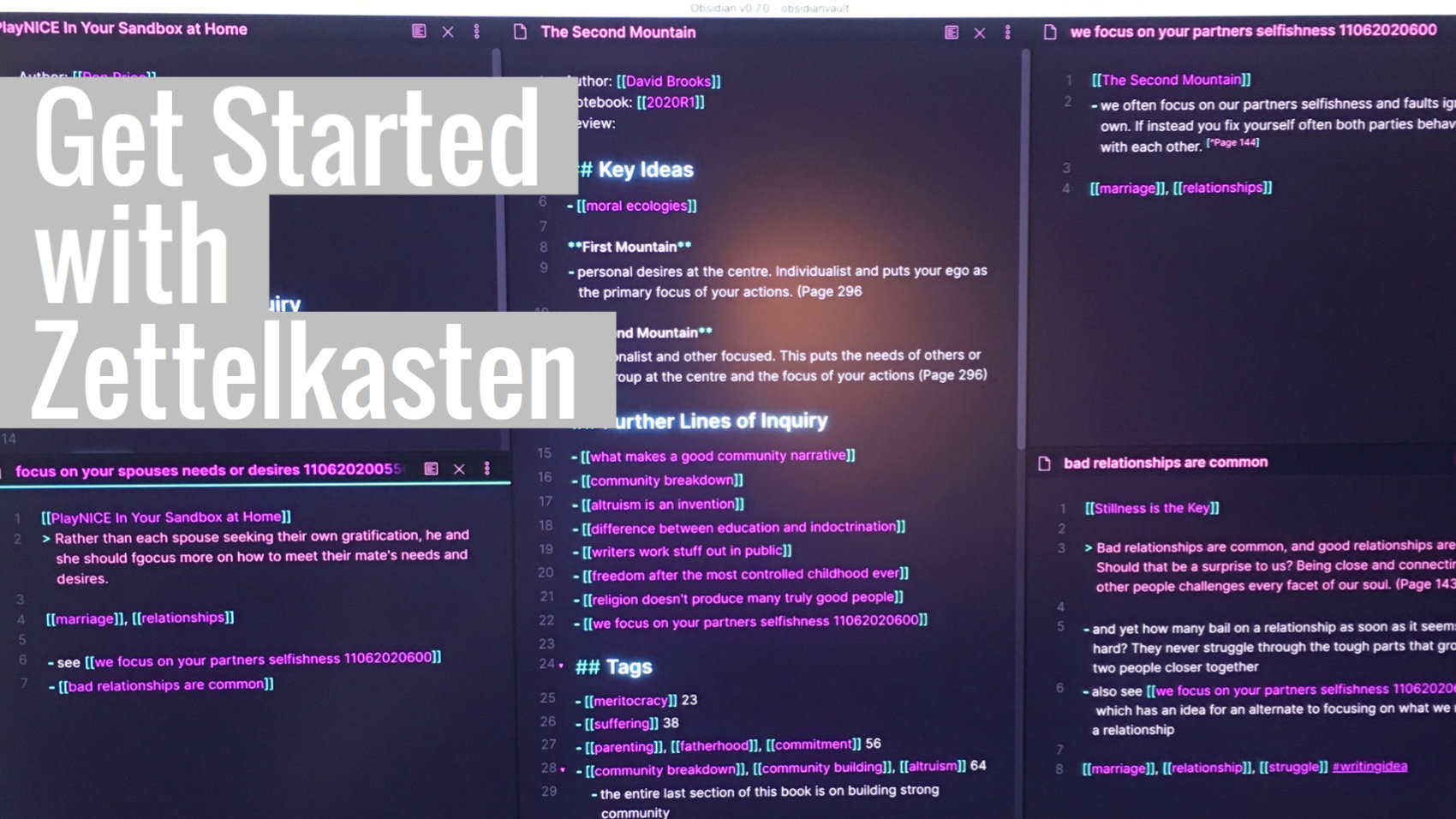Today we’ll look at what the main building blocks of a Zettelkasten system is. If you’ve been looking for a quick overview, this is what you’re looking for.
Terms to Understand
Before we dig into the system, we need to define a few terms.
Fleeting Notes: These are any notes or ideas you collect during the day. These may not populate your main archive/slipbox because they may not make it through your filtering process later.
Literature Notes: These are notes that you take on things you read. They’ll end up in your Inbox may not migrate to your main Archive.
Archive/Slipbox: This is the main repository for long term research notes.
Inbox
The first thing you’ll need to get started with a good Zettelkasten system is an inbox for your fleeting notes. I use DEVONthink for all my fleeting notes and any online reading material that I want to go over to see if it’s something to move into my main archive. I’ve picked DEVONthink because it has stable links to the notes inside and allows me to grab full copies of any content I want to save for offline viewing.
I don’t use Obsidian, my main Zettelkasten software because Obsidian is for storing my thinking on research. It’s far to easy to collect the thinking of other people in your system and fool yourself into believing that you’re increasing your knowledge. Instead, you’re falling into the Collector’s Fallacy, and not progressing your learning in any meaningful way.
Adding someone else’s article on a topic to your system without expanding on it and connecting it to other ideas is little better than collecting a bookmark that languishes in your system because someday you’ll get back to the content.
It’s not bad to collect lots of resources, but you need strong filters because plenty of the reading you do will not extend your thinking in a meaningful way. At least 50% of what I add to DEVONthink doesn’t make it into Obsidian. Sometimes the resource isn’t interesting by the time I get back to reading it. Sometimes, as I look at the resource I end up filing it in DEVONthink in case I need to find it later and my search prowess doesn’t yield the resource. In that case, DEVONthink automatically narrows my search because it’s searching content I’ve already filtered in some way.
The only content that moves from my Inbox into my Archive is my thoughts/writing about the content I’ve collected. Some quotes get though, but never without some commentary of my own or a link to another note already in my Archive.
Archive
Your Archive is the software/system that you use to contain all your thinking. As I’ve already said, it is not a place to store content from others without extra commentary of your own.
Your default method should be to either add commentary to any note that you add to your Archive or link any new note to an existing note. If you’re embarking on a new research topic, this may not happen, but those notes in your new research vein should not stand on their own for an extended period.
Choosing an Application or Format?
There are lots of options out there for a system that can help you store and connect your research. My system contains two pieces of software. DEVONthink is my Inbox and Obsidian is my Archive.
I picked Obsidian because it stores all its notes in plain markdown. I can choose how to sync my data between devices, and I own all my data directly on my hard drive. Because my content is in markdown, I could convert it to any other system or build my own link parser if I wanted to move out of Obsidian into some other system.
If you go with a proprietary system, look at the export available. You want to make sure that you can get your research out in a format that works for you long term.
Where People Get Stuck
There are two places where people fail with their Zettelkasten system. First, they get stuck in collection mode. They grab information from other people without expanding on it and think they’re moving their knowledge forward. They don’t take the time to push any of their thinking out to other people in any form. The Zettelkasten system is meant to be used as a foundation to publish your thoughts, not store things.
The second spot that many people get stuck is with choosing a piece of software. There will never be a perfect piece of software, which means you can look until time ends and not find what you want. As you develop your knowledge it’s also possible that you’ll hit barriers with your chosen software. Most times any other software/system you look at will simply have different limitations and overall you’ll be in the same situation you currently are. Don’t jump into the latest hot tool. The time lost in converting your notes to this new system will almost always negate any benefit you’ll get from the tool.
Now, go take some notes and start building some knowledge.
